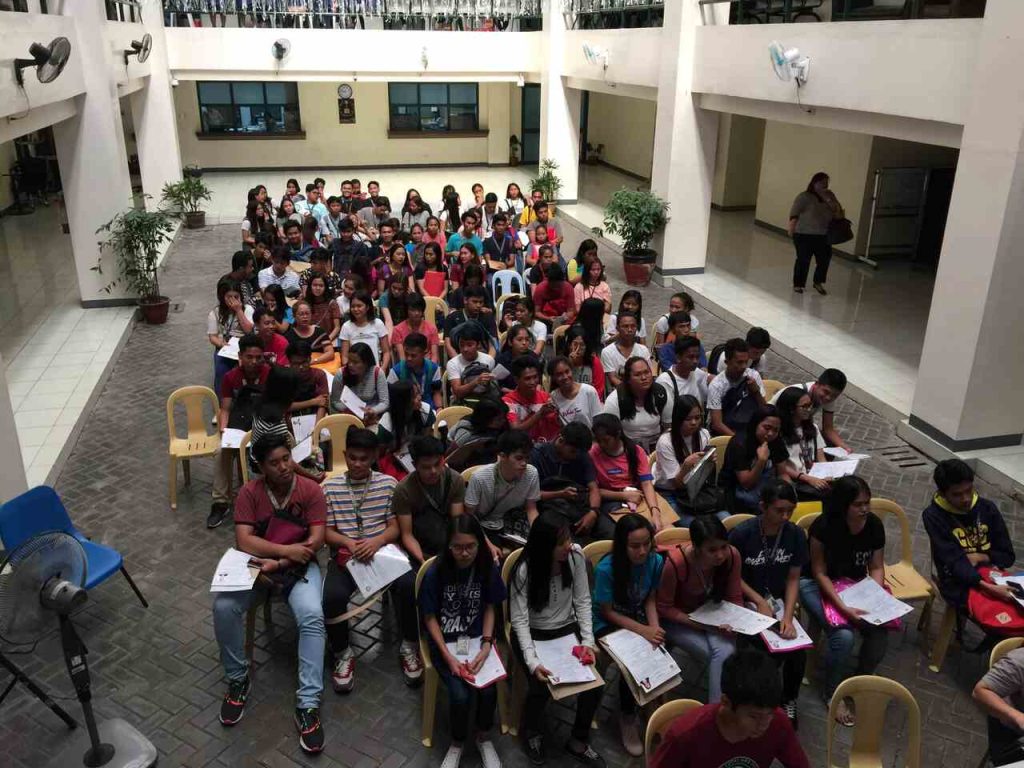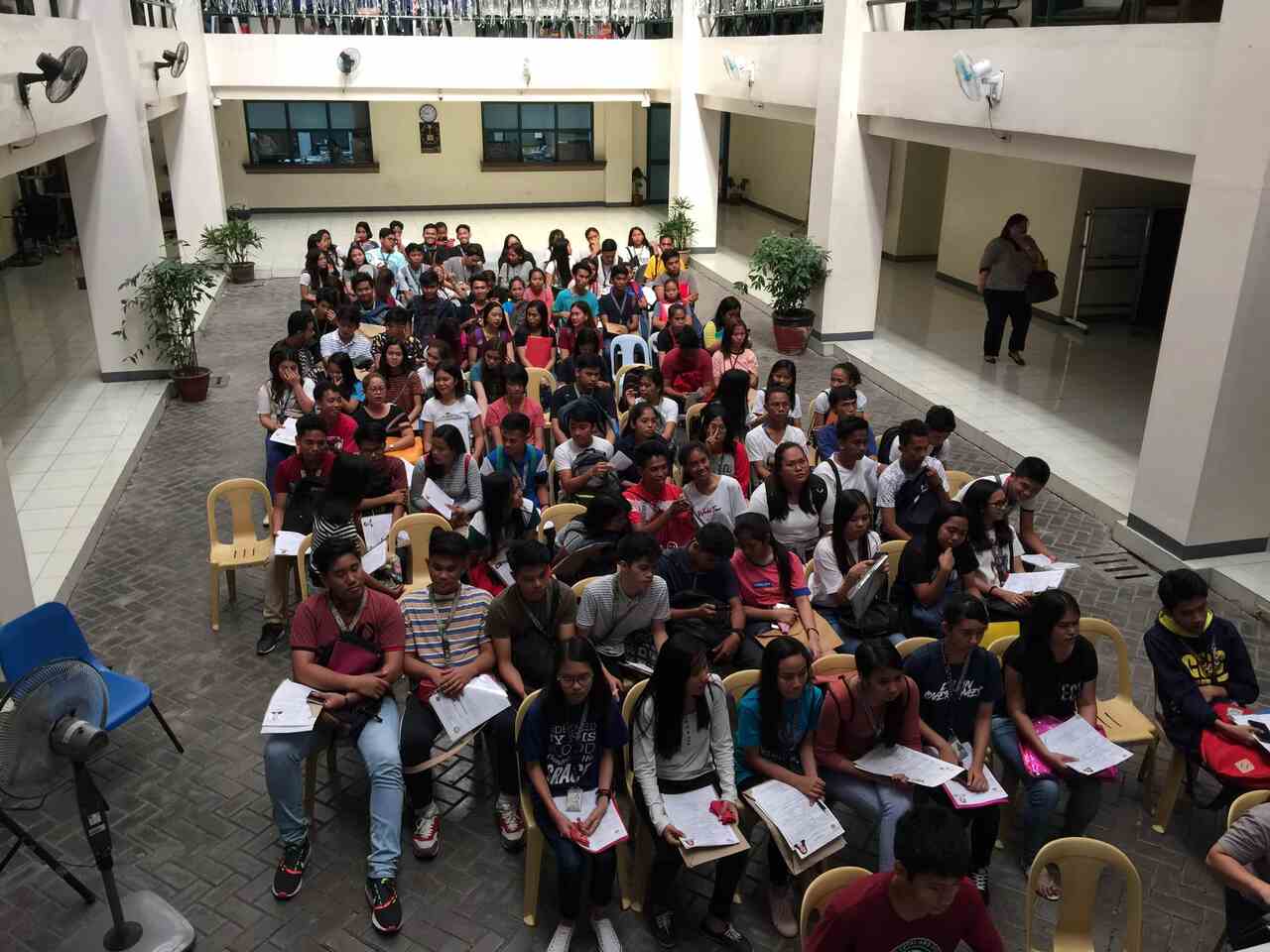The Commission on Higher Education (CHED) offers Student Financial Assistance Programs (StuFAPs) to support deserving Filipino students. These scholarships help aspiring learners pursue higher education without financial burdens, contributing to the country’s development. By understanding the application process, students can secure financial aid to complete their college education.
This guide explains the step-by-step process of applying for CHED’s scholarship programs. It includes eligibility criteria, required courses, documentary requirements, and processing details. Students and families can use this detailed guide to prepare for the application process effectively.
Program Overview
The CHED has established the Student Financial Assistance Programs (StuFAPs) to provide financial support to academically deserving yet financially challenged Filipino students. Created under Republic Act No. 7722, also known as the Higher Education Act of 1994, the program addresses the increasing demand for accessible higher education. Over the years, StuFAPs has supported thousands of scholars, ensuring they pursue courses aligned with national development goals.
The main goal of StuFAPs is to increase college graduates by offering financial assistance to students from underprivileged families. It covers tuition, school fees, and other educational costs for incoming freshmen who meet eligibility criteria, including academic performance and income requirements. The program prioritizes courses under National and Regional Priority Programs, targeting fields that contribute to economic growth, innovation, and employment opportunities in the Philippines.

Benefits
Successful applicants of CHED StuFAPs can receive financial assistance to cover various educational expenses. The benefits include:
- Financial assistance covering tuition, school fees, and other expenses.
- Tuition and Other Fees: Up to ₱20,000 per academic year.
- Stipend: ₱35,000 annually to assist with living expenses.
- Book and Connectivity Allowance: ₱10,000 per year for learning materials and internet needs.
- Access to priority programs that increase employment opportunities.
- Support for underprivileged students to complete their college degrees.
By taking advantage of the StuFAPs, students can complete their education without worrying about the financial burden.
Target Beneficiaries
The program is open to the following groups:
- Filipino citizens who are incoming freshmen or graduating high school students
- Students with a General Weighted Average (GWA) of at least 93%
- Applicants with a combined family income not exceeding ₱400,000 annually
- Underprivileged and homeless citizens
- Persons with Disabilities (PWDs)
- Solo parents and their dependents
- Senior citizens
- Indigenous Peoples (IPs)
Eligibility Criteria
To apply for the program, those belonging to the target beneficiary groups must at least meet the following qualifications:
- Must be a Filipino citizen.
- Incoming college freshmen for the current academic year.
- High school graduate or graduating student with a General Weighted Average (GWA) of at least 93%.
- Combined annual gross income of parents or guardians must not exceed ₱400,000; otherwise, proof of special circumstances (e.g., medical findings, multiple dependents) must be provided.
- Applicants under special groups, such as Persons with Disabilities (PWDs), solo parents and their dependents, Indigenous Peoples (IPs), senior citizens, and homeless individuals, must submit valid certifications or identification cards from authorized agencies.
Documentary Requirements
Applicants for the StuFAPs must prepare the following documents to prove their eligibility and complete their application documents:
- Citizenship Proof
- Duly certified true copy of Birth Certificate
- Academic Documents
- For Freshmen: Certified true copy of your high school report card
- For Graduating Students: Certified true copies of Grade 11 and Grade 12 (first semester) grades
- Financial Documents (any of the following):
- Latest Income Tax Return (ITR) of parents or guardian
- Certificate of Tax Exemption from the Bureau of Internal Revenue (BIR)
- Certificate of Indigency from Barangay or Department of Social Welfare and Development (DSWD)
- Case Study Report from DSWD
- Proof of income or employment contract for children of Overseas Filipino Workers (OFWs) and seafarers.
Application Procedures
Once everything is ready, interested applicants can simply follow these steps:
Step 1: Check if You Are Qualified for CHED Scholarship Programs
To apply for the CHED financial assistance programs, you must meet specific qualifications. These are based on citizenship, academic performance, and family income.
Step 2: Verify If Your Course Falls Under CHED’s Priority Courses
CHED requires scholarship applicants to enroll in courses that align with national and regional priorities. These programs contribute to economic growth and provide in-demand skills.
National Priority Programs
- Science and Mathematics
- Applied Physics/Physics
- Applied Mathematics/Mathematics
- Applied Statistics/Statistics
- Biochemistry
- Biology
- Botany
- Chemistry
- Environmental Science
- Geology
- Human Biology
- Marine Biology
- Marine Science
- Meteorology
- Molecular Biology and Biotechnology
- Information Technology Education
- Computer Science
- Cyber Security
- Entertainment and Multimedia Computing/Game Development and Animation
- Information System
- Information Technology
- Library and Information Science
- Engineering and Technology
- Agriculture and Biosystems Engineering
- Ceramic Engineering
- Chemical Engineering
- Civil Engineering
- Computer Engineering
- Electrical Engineering
- Electronics Engineering/Electronics and Communications Engineering
- Food Engineering
- Geodetic Engineering
- Industrial Engineering
- Manufacturing/Production Engineering
- Materials Engineering
- Mechanical Engineering
- Mechatronics Engineering
- Metallurgical Engineering
- Mining Engineering
- Petroleum Engineering
- Robotics Engineering
- Sanitary Engineering
- Structural Engineering
- Aircraft Maintenance Technology
- Aviation Related Programs
- Engineering Technology
- Industrial Technology
- Mechatronics Engineering Technology
- Architecture and Design
- Architecture
- Fine Arts
- Interior Design
- Landscape Architecture
- Environmental Planning
- Business and Management
- Accountancy
- Business Analytics (straight or major)
- Hospitality Management/Hotel and Restaurant Management
- Tourism Management/Tourism
- Health Profession Education
- Doctor of Dental Medicine
- Doctor of Optometry
- Medical Technology/Medical Laboratory Science
- Midwifery
- Nursing
- Nutrition and Dietetics
- Occupational Therapy
- Pharmacy
- Physical Therapy
- Radiologic Technology
- Respiratory Therapy
- Speech Language Pathology
- Social Sciences
- Community Development
- Human Services (Guidance and Counselling)
- Indigenous Peoples Studies/Education
- Peace Studies/Education
- Psychology
- Social Work
- Teacher Education
- Secondary Education major in Science and Mathematics
- Culture and Arts
- Early Childhood Education
- Special Needs Education
- Sports and Exercise Science
- Multi and Interdisciplinary Cluster
- Agribusiness
- Agro-Forestry
- Data Science and Analytics
- Disaster Risk Management/Climate Change
- Renewable/Sustainable Energy
Regional Priority Programs
CHED Regional Offices also determine additional Regional Priority Programs based on local industry needs. Applicants should verify available slots and relevant courses in their area.
Step 3: Complete the CHED Scholarship Program Application Form
Once you confirm eligibility and course qualification, proceed to the application stage.
- Access the CHED Scholarship Program application form online.
- Fill out the form accurately with the required personal and academic details.
- Submit the completed form and prepare the necessary documents for verification.
- CHED evaluates the submitted information to verify eligibility before proceeding to the ranking process.
Step 4: Prepare and Submit Required Documents
Students must submit both academic and financial documents to the CHED Regional Office as instructed. Keep track of announcements for further evaluation results.
Step 5: Application Review and Ranking
The CHED Regional Office reviews applications and validates documents.
- Submit your application form online with complete requirements.
- CHED reviews and acknowledges receipt of your application.
- Applications meeting the requirements will undergo validation and ranking.
- Disqualified applicants will receive notice of their status.
Note: CHED ranks student applicants based on GWA, financial need, and course priority. Only the top applicants within the available quota will proceed to the next stage.
- Qualified applicants receive a Notice of Award. Respond to this notice promptly to confirm acceptance of the scholarship.
Where to Get the Application Form
The application form for CHED StuFAPs can be accessed online via the CHED Regional Offices website for the online application form or the physical offices to obtain a hard copy of the form and inquire about additional requirements. It is important to ensure that the form is correctly filled out and submitted within the specified application period.
Fees and Processing Time
The CHED StuFAPs application process does not require any fees, making it accessible to all eligible students. Processing time takes approximately 40 working days, which includes document review, validation, and ranking of applicants. Applicants are notified of their application status within the specified timeline after the evaluation period concludes.
Important Reminders
Applicants and grantees of CHED StuFAPs should keep the following important reminders in mind:
- Submit complete and accurate documents to avoid disqualification.
- Regularly check official announcements from CHED Regional Offices for updates on application status.
- Respond promptly to notices of award to confirm acceptance of the scholarship.
- Maintain the required academic performance throughout the scholarship period to retain financial assistance.
- Notify CHED immediately of any changes in personal or academic circumstances that may affect eligibility.
- Grantees are not allowed to defer the scholarship; failure to enroll in the designated academic year will result in forfeiture of the grant.
- Applicants must meet all eligibility criteria, including academic performance and financial requirements, to maintain their qualification.
- Providing false information or incomplete documents will lead to automatic disqualification from the program.
- Grantees must enroll in CHED-recognized higher education institutions and take courses listed under CHED priority programs.
Video: CHED StuFAPs Application
For a visual overview of the CHED Student Financial Assistance Programs, watch this video from Nest & Jess. It will walk you through eligibility, required documents, and the step-by-step application process to simplify your journey.
Summary
The CHED Student Financial Assistance Programs (StuFAPs) provide scholarships for deserving Filipino students to pursue higher education. To apply, students must meet eligibility criteria, enroll in priority courses, and submit complete documentary requirements. Applications are reviewed and ranked by CHED Regional Offices, ensuring fair distribution of scholarship funds. If you believe that you are qualified for this program, then follow this guide to successfully apply for financial assistance and achieve your educational goals with CHED support.
